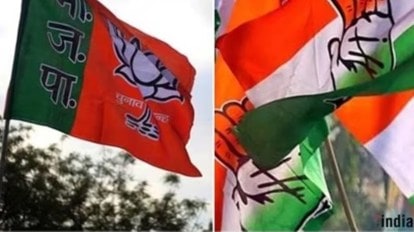The first Assembly election in Jammu and Kashmir (J&K) in over a decade is set to be a critical event, coming after significant political and constitutional changes in the region. The last Assembly election was held in 2014, and since then, J&K has undergone the revocation of its special status under Article 370 and its bifurcation into two Union Territories in August 2019. The upcoming election will test the political realignment and voter sentiments in this new landscape.

Source:- news 18
In the recent Lok Sabha elections, the National Conference (NC) emerged as the leading party in the Kashmir Valley, reinforcing its traditional stronghold. The NC’s dominance reflects its ability to retain the trust of the Valley’s electorate despite the turbulent political environment. This could translate into a strong performance in the upcoming Assembly polls, particularly in the Kashmir region.
Source:- BBC news
On the other hand, the Bharatiya Janata Party (BJP) has solidified its presence in the Jammu region, winning all the Lok Sabha seats there. The BJP’s strategy has been to consolidate its vote bank by focusing on development and nationalistic narratives, which resonate strongly with the electorate in Jammu. This puts the BJP in a strong position as it seeks to expand its influence in the upcoming Assembly election.
The dynamics between the NC and BJP will be crucial in determining the political future of J&K. While the NC is expected to dominate in the Valley, the BJP’s strength in Jammu could lead to a polarized outcome. The Assembly election will also be a litmus test for other regional players like the Peoples Democratic Party (PDP) and new entrants, who will be vying for relevance in this changed political scenario. Overall, the election is poised to reshape the political landscape of J&K, reflecting the evolving aspirations and concerns of its people.
Share your views in the comments

